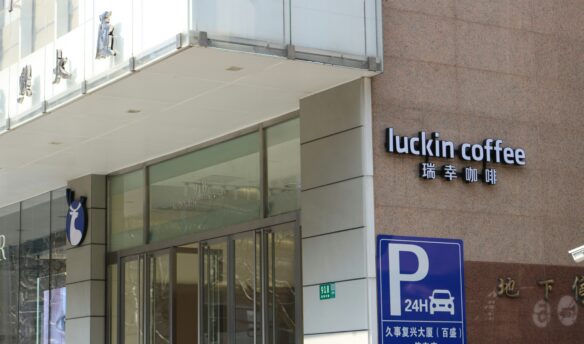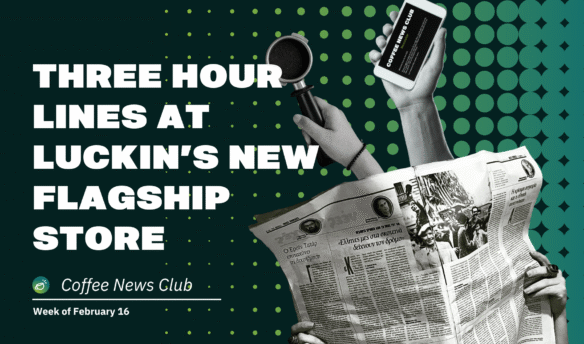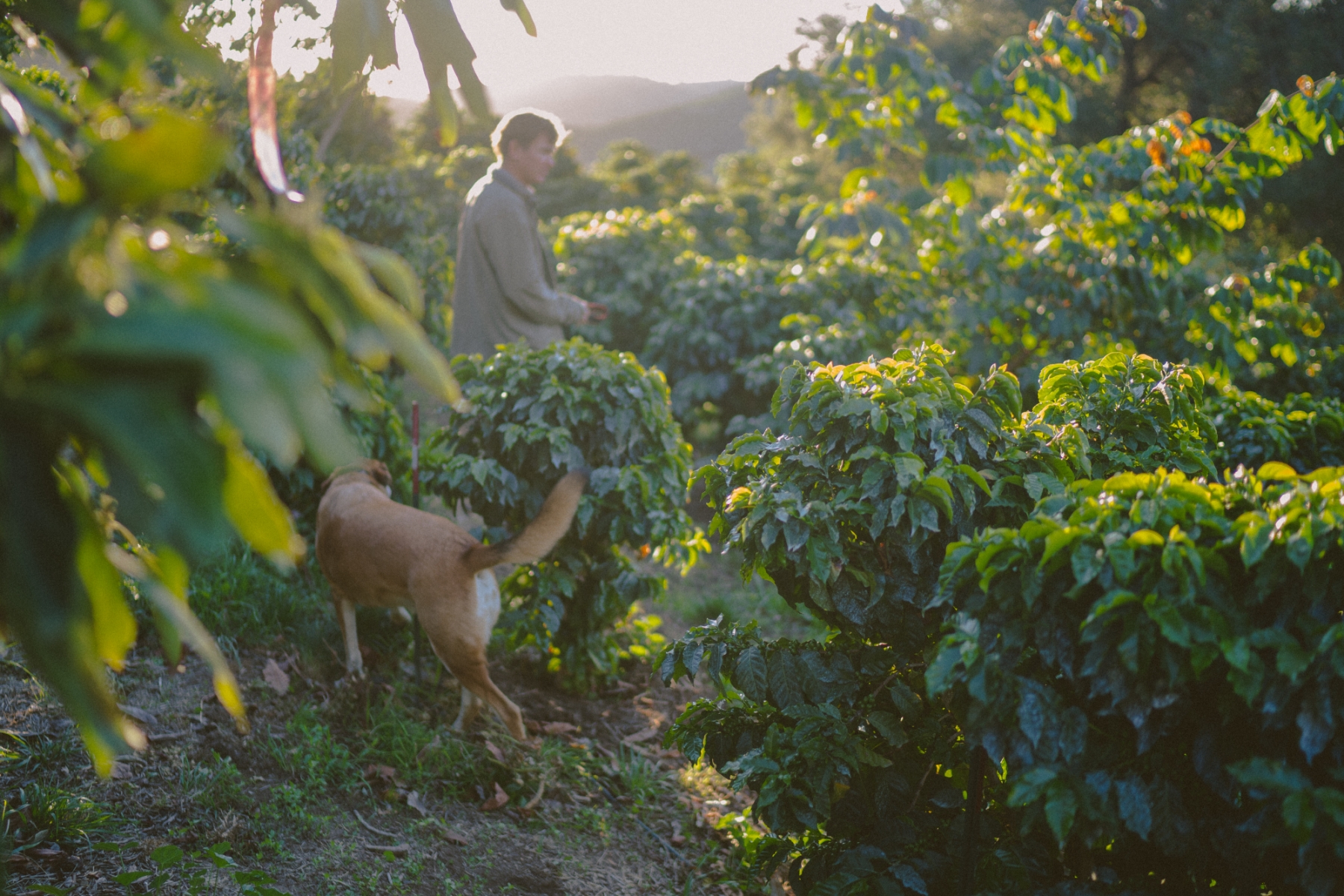Would you spend $24,000 on a watch made from recycled coffee? Plus, demand for robusta is pushing up the price of instant coffee, and two more celebrities want to sell you coffee.
‘On the Ground Supporting DR Congo Coffee Communities Ravaged by Floods’ – via Daily Coffee News
Heavy rains in early May caused flash flooding in the eastern coffee-growing regions of the Democratic Republic of Congo and parts of Rwanda and western Uganda. As of May 9th, there were 400 deaths and 5,000 missing people, and 100,000 displaced.
Coffee cooperatives located on the shores of Lake Kivu, including Muungano, SOPACDI, and Kalehe Arabica Coffee Cooperative, had members directly impacted by the floods. On the Ground, a nonprofit that works with coffee farmers, is one of several organizations joining the DRC government to assist with relief efforts by raising funds to address the needs of those affected.
Companies like Atlas Coffee Importers, Cooperative Coffees and Higher Grounds Coffee are all raising funds for and awareness of On the Grounds’ work. Herman Chirihambal Lwango, the DRC Country Director of On the Ground, has been visiting the afflicted areas. “So many coffee farms have been destroyed,” he wrote. “People have lost everything, need everything.”
Read the full story here and donate directly here.
‘Bean Shortage Drives Up Cost of Even the Cheapest Cup of Coffee’ – via Bloomberg
Robusta coffee is becoming more sought-after as the global cost-of-living crisis “pushe[s] coffee drinkers to get their fix from cheaper brews.” At the same time, robusta beans are in short supply as big producers like Vietnam and Brazil struggle to keep up with surging demand.
This is yet another article in a long-running series that frames rising green coffee prices as bad because it increases the cost of your personal cup of joe. Interestingly, robusta—usually described as the fall-back option when arabica bean prices go up—is now positioned as “too expensive” as the price of instant and blended coffee products surges.
Robusta’s hardiness and ability to grow at lower elevations and in higher temperatures make it more economical to produce. However, the countries that produce the most robusta plants face challenges: in Brazil, crops have suffered due to drought; in Indonesia, heavy rains have hampered the coffee harvest; and in Vietnam, farmers are moving away from coffee to focus on more profitable crops such as durians.
Despite poor projections, robusta exports are still on the rise—just not at a rate fast enough to cope with demand. “There’s been so much of a demand shift away from higher-priced coffee that even the market isn’t… being satisfied by higher robusta exports,” says commodities consultant Judith Ganes.
Ganes notes that Vietnam and Indonesia have worked to improve the quality of their robusta, and the specialty industry has developed an interest in robusta over recent years. The article quotes the owner of a cafe in Brazil who encourages consumers to try robusta, pointing out that the variety features “very interesting flavors” and “sweetness and acidity, which are a great addition and give balance to the drink.”
Read the full story at Bloomberg or via Yahoo! News.
‘Australia’s “Richest Barista” Competition Offers 12 International Spots’ – via Daily Coffee News
Most formal coffee competitions don’t include a cash prize. While there may be a modest cash reward for latte art throwdowns, events like the World Barista Championships offer no monetary award (winning can open up new opportunities and potential paid partnerships—and you get to take home a big trophy).
A new event called Australia’s Richest Barista is looking to buck tradition. The inaugural competition will occur during this year’s Melbourne International Coffee Expo (MICE) in August, with a total prize pot of AUS $40,000 (approximately US $26,400) split between first through third place finishers. Don’t let the name fool you: Australia’s Richest Barista is open to twelve international entrants (there are 32 slots; 20 are for MICE exhibitors and Australian Specialty Coffee Association members, while the remaining 12 are available to any interested competitors)—applications close Friday, June 9th.
Baristas will participate in three rounds of competition over three days, incorporating latte art, cup tasting, and drink creation skills. Competitors must have three years of barista experience.
Before you think about renewing your passport, it’s worth noting that flights to Melbourne, along with travel costs like hotels and food and not to mention taxes, will put a dent in that winning check (the first-place finisher gets the largest piece of the pot at $25,000/$16,500, second takes home $10,000/$6,600, and $5,000/$3,300 goes to the third place winner). Also, you’ll be up against 31 other competitors, so the odds of winning aren’t exactly in your favor. But if you’ve got what it takes and would like to apply, the details and rules are here.
More News
‘Support Ecuadorian Coffee; Help Botánica Rebuild in Quito’ – via Daily Coffee News
‘In Mexico, Coffee is a Family Affair’ – via Slow Food
‘Switzerland Becomes First Country to Ratify ICA 2022’ – via Global Coffee Report
‘US Roaster Corp’s Latest Revelation is the All-Electric F16’ – via Daily Coffee News
‘IHOP Is Selling Pancake-Flavored Coffee That You Can Make at Home’ – via Food & Wine
‘How Much Coffee Do You Really Need To Survive A Work Day?’ – via Sprudge
‘8th Colombia’ Land of Diversity’ Coffee Auction Breaks Price Records’ – via Daily Coffee News
‘Flight Attendants Wash Their Underwear In The Hotel Coffee Maker (Allegedly)’ – via Sprudge
More Celebrity Coffee Brands!
This week, two new coffee brands enter the ever-growing celebrity-backed caffeinated train. Stranger Things star Millie Bobbie Brown launched Florence by Mills Coffee, a coffee offshoot of her beauty products brand, while Neil Patrick Harris—or Doogie Howser, MD—gets in the game with After Hours Espresso Martini, a canned espresso martini.
Of her new venture, Brown says that coffee has “always been that pick-me-up to get me through those long days on set, it’s that moment away from all the chaos that allows me to be present again,” she says. “I set out to create a brand that will allow my fans and all coffee lovers to do the same, a brand that isn’t just about great tasting coffee, but about those special moments, too.” Brown teamed up with Collab Coffee to launch the brand, a private-label roaster you might recognize from their work with other celebrity-backed coffee brands.
Neil Patrick Harris, meanwhile, primarily serves as the spokesperson for After Hours, made by Thomas Ashbourne Craft Spirits. “We were trying to think of something that people would crave that there aren’t a lot of representations of,” he said of the drink. “The espresso martini is the sweet spot for me.”
The drink is described in a press release as “bursting with aromas of Arabica and extra dark roast espresso beans, hints of vanilla, and rich dark chocolate,” which is slightly confusing. As Sprudge writes: “Is there both Arabica AND extra dark roast espresso beans of non-Arabica origins? What’s the roast level of the Arabica?”
Brown and Harris join an ever-expanding lineup of celebrities with coffee connections, from full-blown companies such as Youtuber Emma Chamberlain’s Chamberlain Coffee to branding partnerships featuring musicians like Snoop Dogg and the Weeknd.
Read about Millie Bobby Brown’s coffee here and the Neil Patrick Harris collaboration here.
The Week in Coffee Unionizing
- Starbucks has been forced to reinstate a barista in Ann Arbor, Michigan, who returned to work over a year after being unlawfully terminated. Hannah Whitbeck was fired in April 2022 in what US District Judge Mark A. Goldsmith ruled was an illegal termination for union organizing. “I am excited to be back in the store so I can continue to help the union effort and hold this company accountable,” Whitbeck said. “Hopefully, they will actually sit down and start bargaining in good faith with us soon so we can get the contract we are still fighting for and deserve.”
- As Starbucks closed all three unionized locations in Ithaca, Cornell University’s chapter of the American Association of University Professors unanimously voted to support the students’ petition to remove the company from campus. “We support the Cornell student advocates who are protesting Starbucks’ presence on the Cornell campus due to Starbucks’ unlawful and unethical actions,” the statement reads. “The university should make clear to Starbucks and the wider public that it will not accept union busting or retaliation against workers exercising their rights.”
- The number of unionized Starbucks stores continues to creep upwards. Workers at a location in Iowa City, Iowa, voted unanimously to become the first store in the state to unionize, while Colorado now has ten unionized stores after workers in Westminster voted to join Starbucks Workers United.
The Week in Corporate Coffeewashing
Nespresso has launched many products made from recycled pods, including sneakers, a bicycle, a pen, and even a vegetable peeler. But now they’re upping their game—and the price.
Nothing screams “environmental values” and “circular products” like a $24,000 watch made with a small percentage of recycled materials. But those are the words that Nespresso and Hublot used to describe their new collaboration, a limited-edition luxury watch that “redefine[s] the way in which the coffee grounds and aluminium of your Nespresso capsules can be re-used.”
“Circularity is a commitment that we pursue on a daily basis,” Nespresso says on its website. “By pushing the limits of the recycling of used capsules, we’re discovering new ways to re-use aluminium and coffee grounds.”
Per Daily Coffee News, the watch shell is made with recycled aluminum, 28% of which is from Nespresso capsules. Hubolt offers two different strap options, both made from coffee grounds: the rubber strap uses 4.2% coffee grounds, while the fabric version has 5%. And that’s about it. But at least it’s green (literally—the watch is a bright green color).
“The Big Bang Unico Nespresso Origin is the perfect illustration of the harmonious coexistence between circularity and luxury,” Nespresso CEO Guillaume Le Cunff said. “It demonstrates that circular products can be just as elegant and refined as conventional luxury products, proving that it is possible to combine environmental values and aesthetic requirements without compromise.”
As with all such announcements, the watch gave Nespresso plenty of good publicity, with most articles mentioning the recycled pods in their headlines. Nespresso’s stated recycling rate for its aluminum pods is 30%, while experts point to a number closer to 5%. If we give Nespresso the benefit of the doubt and go with their figure, that still means that 12,600 tons of aluminum from their coffee pods end up in landfill annually.
Beyond the Headlines
‘The Third Place’ by Zuzanna Kaminski
‘If It’s Going to Happen, It’s Going to Happen in Coffee’ by Ashley Rodriguez
‘Curtailing Starbucks’s War on Its Unionized Baristas’ by Steven Greenhouse








